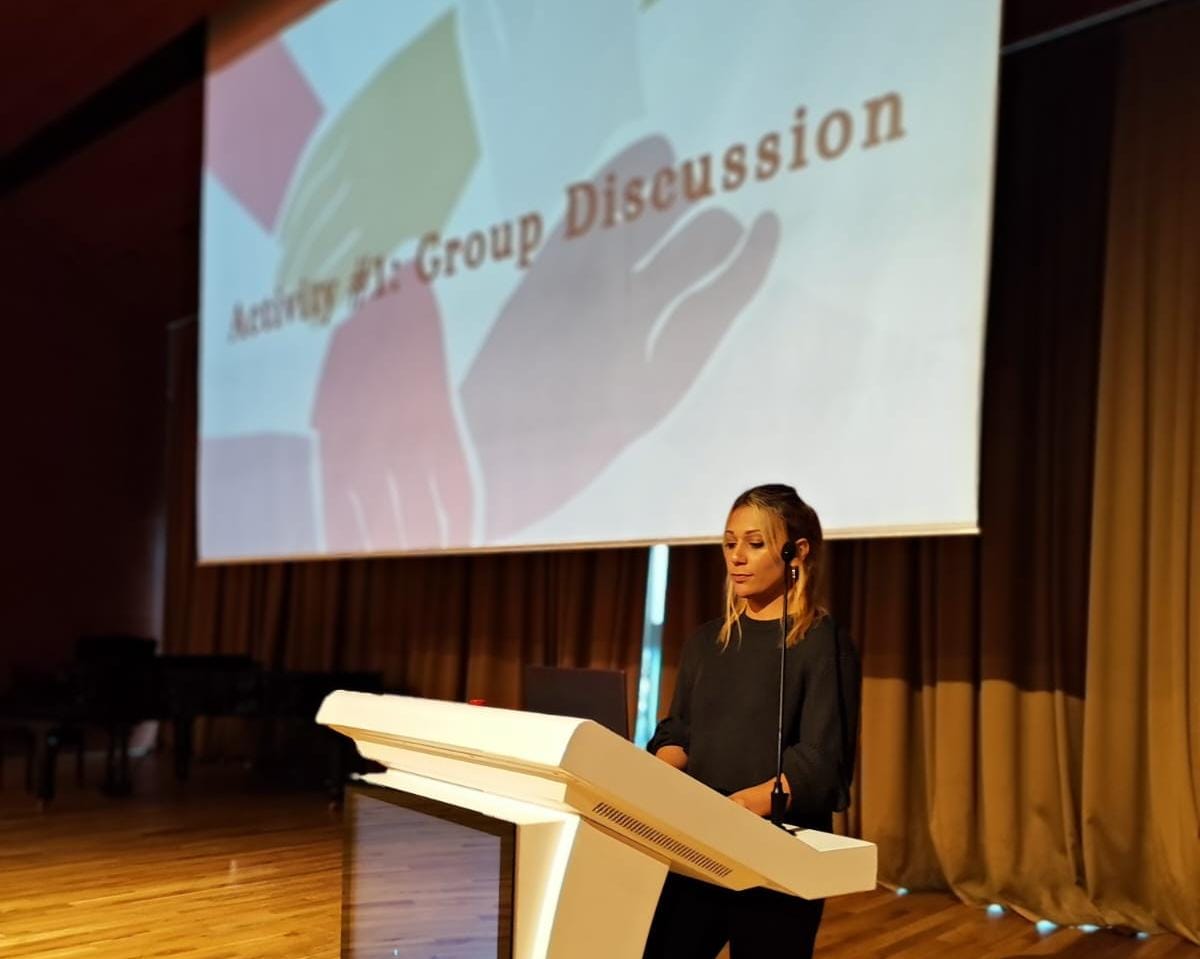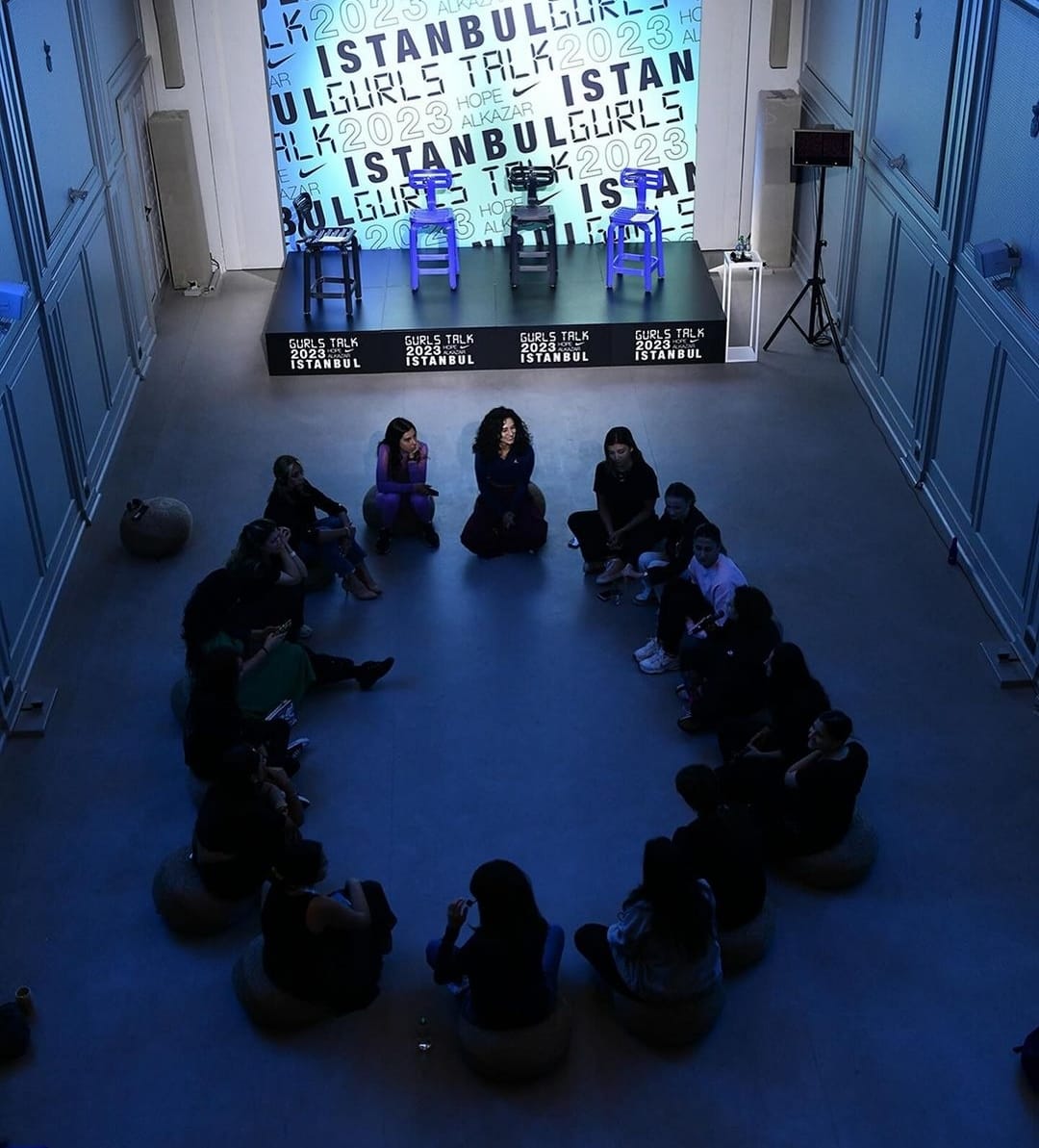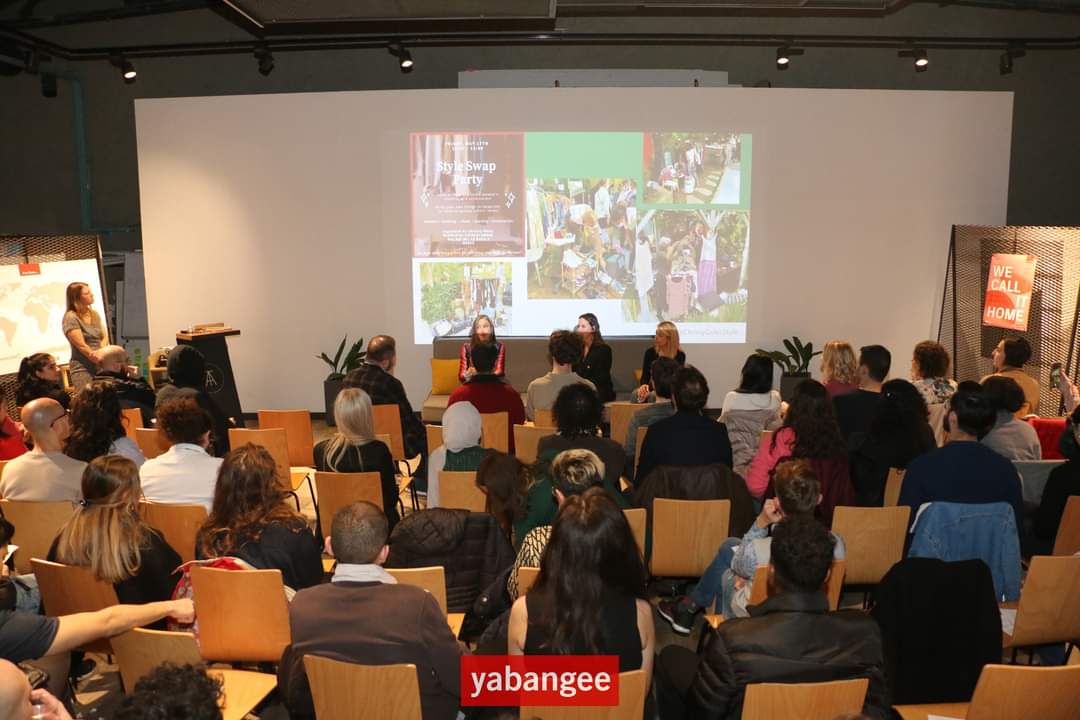We first had the pleasure of meeting Soraya Raeispour in 2016, when she arrived in Istanbul with boundless enthusiasm, ready to embark on a new chapter of her life. Over the years, we’ve watched her grow into a seasoned psychotherapist and counseling psychologist, all while retaining that same infectious enthusiasm that defines her. With a background steeped in cultural diversity, Soraya brings a unique and insightful perspective to her practice in Istanbul.
We recently caught up with her to delve into her experiences navigating language and cultural differences, explore the evolving attitudes towards mental health in Türkiye, and gain valuable insights into the pivotal role of therapists amidst rapid urbanization and demographic shifts. It has been an honor to witness Soraya Raeispour’s journey, collaborate with her, and gain a deeper understanding of her unwavering commitment to empowering individuals through therapy while fostering resilience in the face of life’s myriad challenges.

Could you tell us a little bit about yourself?
My name is Soraya Raeispour. I am originally Iranian but was born and raised in the United Arab Emirates. I moved to Türkiye in 2016, and I am currently completing my second Masters in Clinical Psychology.
I am a psychotherapist and counseling psychologist. I have been practicing professionally for the past 7 years, working with international clients in Türkiye and abroad. I am the Lead Psychologist, in charge of working with international students, at Bahçeşehir University’s Psychological Counseling and Guidance Unit. Apart from that, I am also a speaker and a columnist for Yabangee.
What drew you to therapy in the first place? Why did you choose to pursue your studies and ultimately practice here in Türkiye?
My decision to settle in Istanbul was a series of choices and circumstances, mixed in with some fate. After graduating in 2015 from Middlesex University Dubai, I had planned to immediately pursue my Masters in the United Kingdom, going as far as completing an exam, two interviews, and getting an official acceptance letter. But because of some uncalculated circumstances, I ended up taking a gap year to focus on working as a research assistant, and, later on, a therapist assistant.
Eventually, I decided to visit Istanbul before traveling to the UK to pursue my Masters, only to find myself confidently making the crucial decision to pursue my education in Türkiye, which was not very ‘Soraya-like’.
I took this decision a step further and visited some universities to finally make up my mind. I was honestly captivated by the view of the Bosphorus and the hospitality of my then soon-to-be professors at BAU. It felt like I was in the right place at the right time, and I immediately registered without thinking twice.
How has your experience been as a therapist in Istanbul? Are there any unique challenges or opportunities that you have encountered in the Turkish context?
Firstly, being a part of a diverse community, an actual melting pot of different walks of life, is such a blessing. We are all eerily similar yet so incredibly different from each other.
To me, diversity is one of the basic elements of what it is to be human. For therapists, the opportunity to be able to meet and work with people from different backgrounds is a goldmine of opportunities to learn about others and ourselves. Having to help people navigate through their unique struggles and highlighting their strengths and capabilities (which they may either minimize and/or may have forgotten) is so very rewarding.
About the second question, a few points come to mind. One of the main challenges in the world of psychology, I believe, is the existence of unethical therapists. Being able to access information on social media at any given moment means that content creators who are not licensed to practice can showcase themselves as professionals. They may be providing clients with unsolicited advice, with little to no scientific evidence. This not only subjects people to unsolicited information but also gives dedicated, hard-working therapists a bad reputation. That too, on top of all the other challenges and obstacles we face.
I have myself been (in some cases) the second, third, fourth, etc. therapist some clients have worked with; who despite their negative experiences have built the courage to give therapy one more chance. I’ve worked with clients who had expressed feeling unsafe and/or judged by. Some experienced their therapist’s lack of empathy and understanding. Not all therapists practice ethically, and unfortunately, clients may think it is all part of the process of healing, especially if they enter therapy with the idea that their therapist knows better. Undoing the twists and turns can sometimes elongate the therapeutic process for the client and therapist, and this can require a lot more patience and mental gymnastics.
Certainly, these points were not expressed as a means to discourage those who are considering psychology as a potential career or to those who are just starting to build themselves as the therapists of the future. This is to raise awareness and vigilance within both therapists and clients, as therapy is a life-altering step that could trigger feelings of worry, anxiety, and concern for some.

What therapeutic approaches or intervention do you use as a therapist?
I mainly use psychodynamic therapy, with hints of cognitive-behavioral therapy and positive psychology. Psychodynamic therapy was always interesting to me as it is an insight-oriented form of talk-therapy, comprehensive enough to dive deeply into one’s unconscious beliefs, thoughts, and emotions, and how it influences their behavior.
I personally use a holistic, non-conventional type of talk-therapy, which is founded on elements like safety, trust, and acceptance.
During sessions, I guide my clients through exploring their unconscious mind, helping them uncover unresolved traumas and buried emotions that may be affecting their present experiences. The goal my clients and I aim to achieve together in our sessions is not to ‘fix’, ‘get rid of’ or solve the immediate problems, but to provide them with a deeper self-understanding, and empowering them to not allow those deeply embedded traumas to define them, but to find strength in how these issues have shaped them into being who they are today. To find strength and resilience in the chosen vulnerability, and to break patterns that no longer serve or support them.
How do you navigate language and cultural differences in your therapy, especially considering that Istanbul is so diverse?
An important point to consider when it comes to therapy is that clients should be able to express themselves in the language they feel the most fluent in. This also applies to the therapist, who must feel able to explain and use appropriate terminology.
Personally, navigating around language was and is pretty straightforward. I prefer to work with clients who are fluent in English, occasionally offer therapy in Farsi, and rarely conduct therapy in Turkish. For clients with whom I cannot communicate due to differences in language, I refer them to psychologists I collaborate with and greatly trust. I communicate this very openly and honestly, as regardless of whether I do work with a client or not, they are still a priority.
My experience with cultural differences is a whole other story. I’m not sure if there is a word for someone that doesn’t completely belong to a single country but also belongs to various countries at the same time. Being part of the 2nd generation Iranian diaspora, spending my entire life in the United Arab Emirates, and choosing to settle in Türkiye in my mid-twenties (that too with my Turkish husband), must surely put me at an advantage of being highly culturally-aware, right? In addition to that, I try to keep up-to-date with the news and student testimonials about news from their countries. Whether it is economical, political, or that their country is in conflict, practicing empathy, understanding, and awareness about what is going on outside my personal ‘bubble’ has allowed me to connect to so many different lives – by creating a safe space where people can share their life-story.
Mental health awareness is evolving globally. How have you observed the attitudes towards therapy and mental health changing in Türkiye, and what role do you think therapists play in this shift?
This is a really good question. As we evolve as human beings, our concepts also evolve. The biggest shift in mental health awareness that I personally came across occurred during the Covid pandemic. I have spoken about this multiple times in the panels I spoke at, and in pieces I wrote, like the one about loneliness. I wrote my first thesis on the psychological impact of Covid, and was able to witness the shift in real-time.
How today’s society and the world as a whole perceive psychology now started when people started talking openly about the importance of self-care and setting boundaries as ways to cope with loneliness, lockdowns, and curfews. We all lived through and experienced different but similar struggles and emotions due to the pandemic. In a strange way, we were not alone in these struggles, and perhaps, that made it easier to talk about what we felt.
After the pandemic, I noticed some of my clients (especially those from more collectivistic cultures) to be a lot more open to the idea that therapy is powerful and beneficial. Additionally, younger clients were much more aware and knowledgeable of psychological terminology, and much more understanding and kind in voicing their feelings, and this has encouraged parents to disregard and ditch outdated ideas for open communication with their children. People no longer approach therapy with fear, and instead are curious. People no longer seek therapy when they feel life is going out of hand; they now feel compelled to reach out when they are seeking a different perspective. It is honestly a wonderful time to be alive and witness this transition.
Istanbul can be particularly overwhelming on people in both their professional and personal lives. How do you address issues related to stress, burnout, or work-life balance with your clients?
In my opinion, balancing professional and personal lives have always been stressful. This, however, does not mean we should minimize how people feel today in both of these important dimensions.
The pressure of external factors such as financial stability, fulfilling expectations, responsibilities, and the need to pursue one’s own desires and dreams will always be issues we all can face when it comes to making work-related decisions. Much like my approach with every other topic, I usually do not advise my clients to do things in a specific way. This is because I would be taking away their autonomy and impacting their sound abilities in making that decision on their own. That is also because that is how I would have dealt with the issue if it had been myself and I am not.
I usually facilitate my clients in understanding what frustrates them, why it frustrates them, and how to set boundaries in order to protect themselves. Once we set our boundaries, we will feel safer in making our decisions and would make them with confidence instead of out of fear. Boundaries can allow us to create a mental and metaphorical ‘good place’ where we feel safe walking around and expressing ourselves without worrying about any external influence. Additionally, I am a HUGE advocate of self-care. As simple or cliché as it may sound to most people, self-care is so absolutely important for us, and should be practiced every single day, and not only when we feel like cr*p. On a surface level, practicing self-care can help us release pent-up anger, irritation, or excessive energy. On a deeper level, it involves being in a growth mindset of mindfully choosing what is the best for us and supporting ourselves with love and understanding.

Istanbul has seen rapid urbanization and demographic shifts. How does this impact the mental health of individuals and communities, and what role can therapists play in supporting adaptation to these changes?
The Istanbul I moved to in 2016 was so different from the Istanbul we are living in today. The changes are also subtle yet drastic once you look back.
Personally, the changes are something I choose to pay attention to as they could be factors that may affect my clients, regardless of their nationalities. Similar to your question about cultural awareness, being aware of the changes does not mean they will be brought up in the session or will change the route of our intervention, but it can serve as basic information that my client wouldn’t need to find themselves elaborating on or re-living. If this is something that can help my clients, it would be beneficial to do some research beforehand. I would suggest other therapists to be aware of all the possible factors that may have an influence on their clients. At the most basic level, it can create a space for empathy and also strengthen and deepen their connection with their clients.
What’s next on the horizon for you? Are there any goals you particularly hope to accomplish this year either personally or professionally?
Ah, tough to put into words. I’m a person who enjoys having something to look forward to, in the sense that I like calculating what I want to do. At the same time, I am always down for new projects and collaborations.
This year marks the busiest I have been as a therapist, so I want to dedicate and focus most of my energy on my clients, and my private practice. In my spare time, I promote myself and my thoughts through my social media account, @therapywithsuri.
In terms of profession, my team and I have decided to start an informative podcast for students, and to work on a skills program which aims to integrate both Turkish and international students. I really want to organize one or two art-therapy workshops before the end of the academic semester.
Personally, I started this year with an intention (aka resolution) of improving my relationship with my inner child. Whether it means I should set a boundary or to engage in activities that give me joy and the feeling of expression, I would want to support this intention, serving as a reminder during challenging times. I also want to consistently work on the valuable relationships I have with my loved ones, and continue practicing more stoicism instead of latching onto difficult emotions and thoughts, like I used to.
Before we wrap up, I wanted to express my deepest gratitude. The constant support, encouragement, and feeling of community give me a fuzzy, warm feeling every time. Thank you for having me, Yabangee. I came across this website years ago; when I felt overwhelmed with doubt about my decision to stay in Istanbul. Looking back at it all now, the big and little decisions, all the factors that led to where I am right now. I’m glad I trusted the process.
—
To keep up with Soraya Raeispour, be sure to follow her on Instagram or contact her via e-mail at soraya.raeispour@gmail.com.









